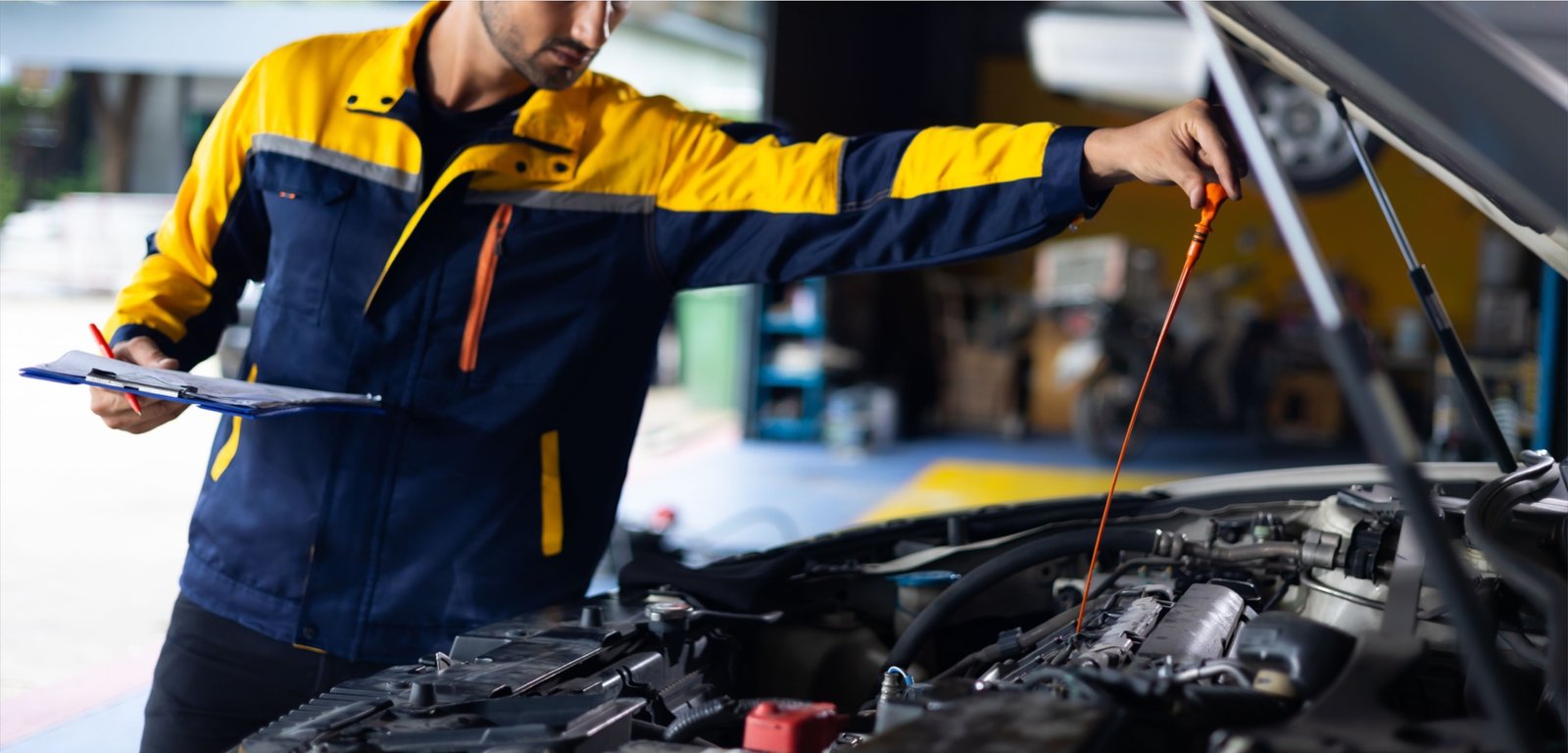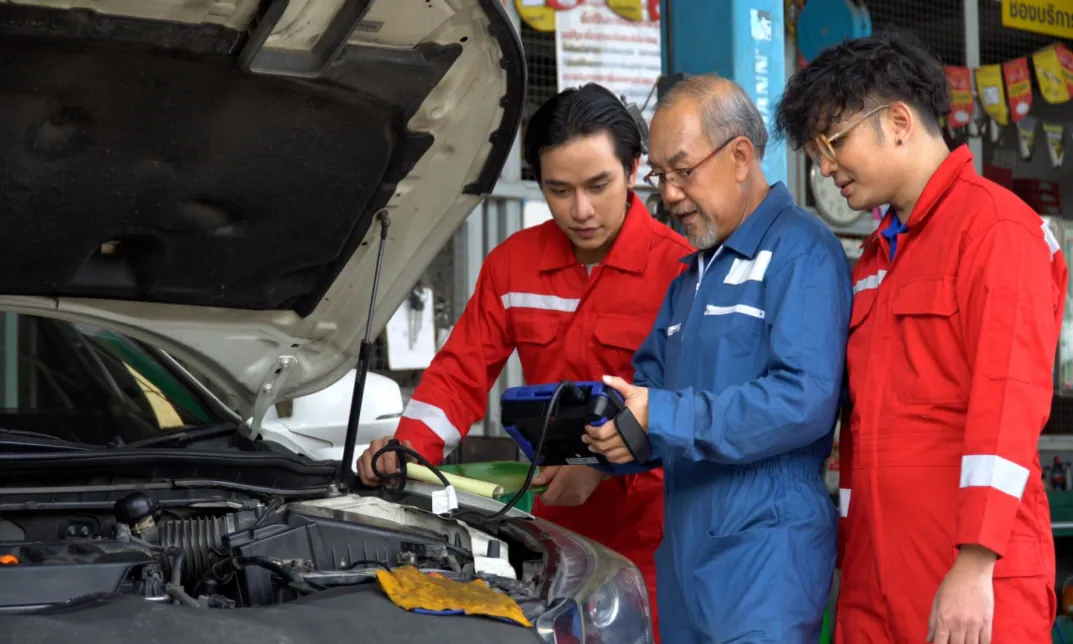No products in the cart.
Have you ever wondered how to become a car mechanic? In the UK alone, there are over 38 million registered vehicles, and with so many on the road, skilled mechanics are always in demand. However, becoming a car mechanic is more than just learning to fix cars—it’s about mastering technical skills, gaining the right certifications, and building hands-on experience.
What is a Car Mechanic?
A car mechanic is a skilled technician who fixes and maintains vehicles to keep them running well. Mechanics are trained to inspect, maintain, and repair all kinds of vehicles, from cars and trucks to motorcycles. Moreover, they focus on mechanical systems, including engines, brakes, electrical parts, and other essential components. As a result, car mechanics play a vital role in helping people stay safe by ensuring their vehicles are in good shape.
Many mechanics work in repair shops; however, some also work in car dealerships, manufacturing plants, or even open their own repair businesses. This career requires more than just knowing how to fix cars. In addition, you’ll need problem-solving skills, patience, and a good eye for detail. Therefore, being successful in this field means being dedicated to learning and improving your skills over time.

What Does a Car Mechanic Do?
A car mechanic’s role is highly varied, involving both routine tasks and complex problem-solving. Here’s a closer look at some of their key responsibilities:
- Diagnose Problems: Mechanics use diagnostic tools and computers to quickly find out what’s wrong with a car.
- Routine Maintenance: They perform regular tasks like changing oil, checking brakes, rotating tyres, and replacing filters to keep vehicles running well.
- Repairs and Replacements: Mechanics fix or replace worn or broken parts, such as tyres and brakes.
- Inspecting Vehicles: They check vehicles for safety issues to ensure compliance with legal standards.
- Use of Tools and Equipment: Mechanics use various hand tools and diagnostic machines to complete their work efficiently.
How to Become a Car Mechanic?
Becoming a car mechanic involves several steps that combine education, skill development, and hands-on experience. Here are some steps to help you start this exciting career:
Complete Relevant Education or Training
Most car mechanics start by completing some form of training or education. While formal education is not always required, it can help improve job chances and provide a strong foundation for success. So, here are a few options:
- Vocational Courses: Many people start with a vocational course in automotive repair. These courses cover everything from the basics of car maintenance to advanced repairs. Additionally, they often include hands-on experience, which is essential for developing practical skills.
- Apprenticeships: Apprenticeships offer on-the-job training, where you learn from experienced mechanics. This hands-on training is invaluable, as it allows you to apply what you’ve learned in real-world situations. Moreover, apprentices earn a small wage while learning and gaining experience.
- Certification Programmes: After some experience, many mechanics choose to get certified. Certifications, such as ASE certifications, will prove your skills and get you certified. ASE offers eight certifications in areas like engine restoration and brake systems. Moreover, it is the industry standard and may help with licensing requirements.
Develop Key Skills
A successful auto mechanic must possess both technical knowledge and practical skills. So, here are some of the main skills every car mechanic needs:
- Mechanical Knowledge: It’s important to understand how different automotive systems, including the engines, brakes, and others, interact. This information will help you identify issues and resolve them efficiently.
- Diagnostic Skills: Identifying the cause of a car’s problems is an essential part of the job. Diagnostic abilities are necessary since you’ll need to quickly detect issues by using tools and interpreting error codes.
- Attention to Detail: A skilled technician must pay close attention to details because minor mistakes in auto repairs might result in major issues. Therefore, accuracy is important when doing repairs or replacing parts.
- Physical Dexterity: Having strong hand-eye coordination and physical stamina is helpful because working as a mechanic often involves lifting large items, using hand tools, and reaching into confined locations.
- Customer Service Skills: Good customer service can help build trust and a positive reputation. Therefore, communicating with customers and explaining repairs in simple terms is an important part of the job.
Build Hands-on Experience
Experience is one of the most important parts of how to become a car mechanic. While classes and courses are helpful, nothing replaces the knowledge you gain by working directly on cars. Therefore, mechanics start by working as apprentices or in entry-level positions where they learn directly from experienced professionals. Moreover, working in a garage or repair shop allows you to apply your skills in real-life situations, which will help you become more confident and efficient.
Over time, you’ll become familiar with different types of vehicles and learn to handle various repairs. As you build experience, you’ll gain confidence and improve your skills, preparing you for more complex repairs.
Choose a Specialisation (Optional)
While many mechanics work on general repairs, some choose to specialise in specific areas. Specialisation can make you more noticeable to certain employers and can often lead to higher pay. Here are some popular areas of specialisation:
- Engine Repair: This specialisation focuses on diagnosing and fixing engine problems, often a complex area requiring additional training.
- Transmission Repair: Transmission systems are quite intricate; therefore, transmission specialists usually stay in high demand.
- Electric Vehicles (EVs): As more people switch to EVs, learning to repair these vehicles can give you an advantage. EVs have different systems than traditional cars, so special skills are needed.

Benefits of Becoming a Car Mechanic
A profession as an auto mechanic has various advantages, despite the fact that the labour might be physically demanding. Some of the following include:
- Job Stability: The demand for qualified mechanics is constant since people depend on cars for everyday transportation. Moreover, repairs are frequently needed, giving mechanics job security even in economic downturns.
- Diverse Work: Auto mechanics rarely have boring jobs. From identifying engine issues to changing parts or checking brakes, every day can bring new difficulties.
- Good Earning Potential: Mechanics with the necessary training and expertise can earn competitive wages, especially if they specialise in high-demand areas.
- Flexible Career Options: Qualified mechanics can work in various places, such as repair shops and dealerships, or they can work alone or start their own company.
Conclusion
Learning how to become a car mechanic involves much more than just a passion for cars. In fact, it requires specific skills, the right education, and plenty of hands-on experience. Generally, the steps include completing training, gaining practical experience, and even specialising in an area that interests you.
By following these steps, you can build a successful and fulfilling career as a car mechanic. Plus, there are plenty of opportunities for growth and advancement along the way.
Furthermore, to get started, you can enrol in the Car Mechanic Training Course offered by Wise Campus and get the expert knowledge and valuable insights needed to succeed in this field.







